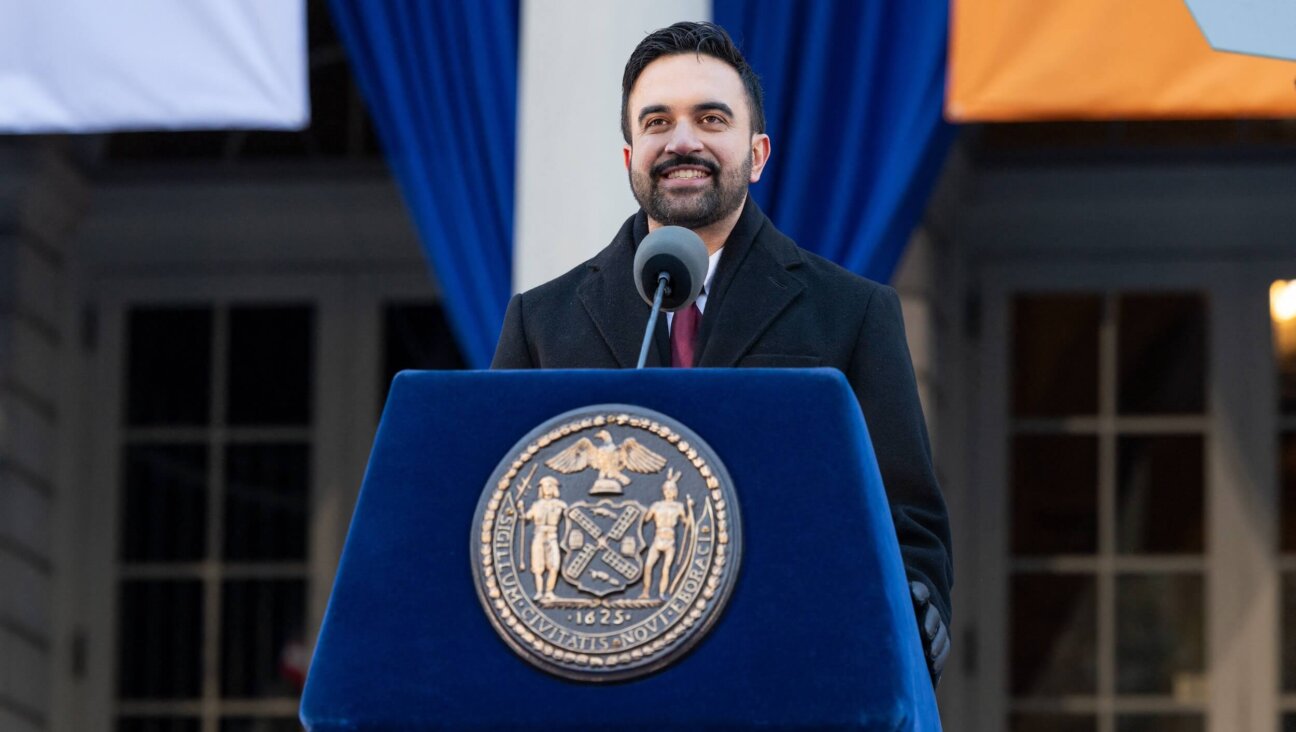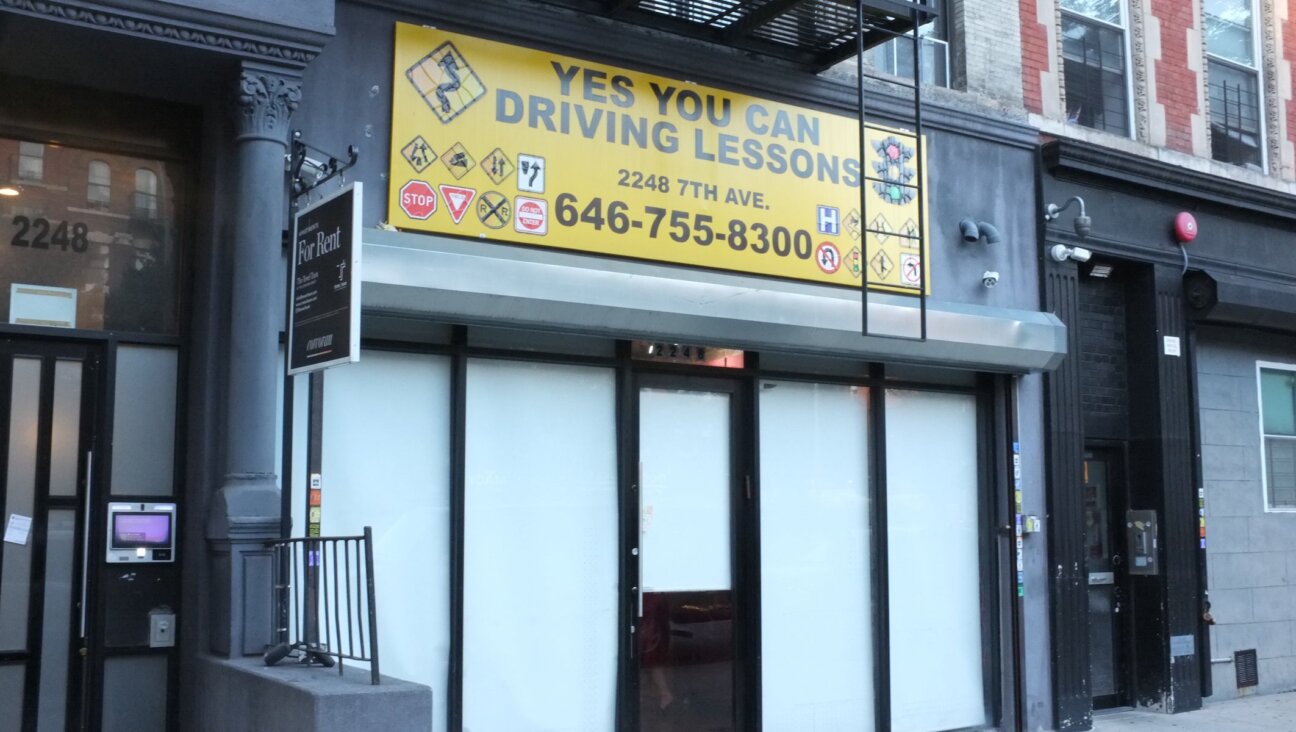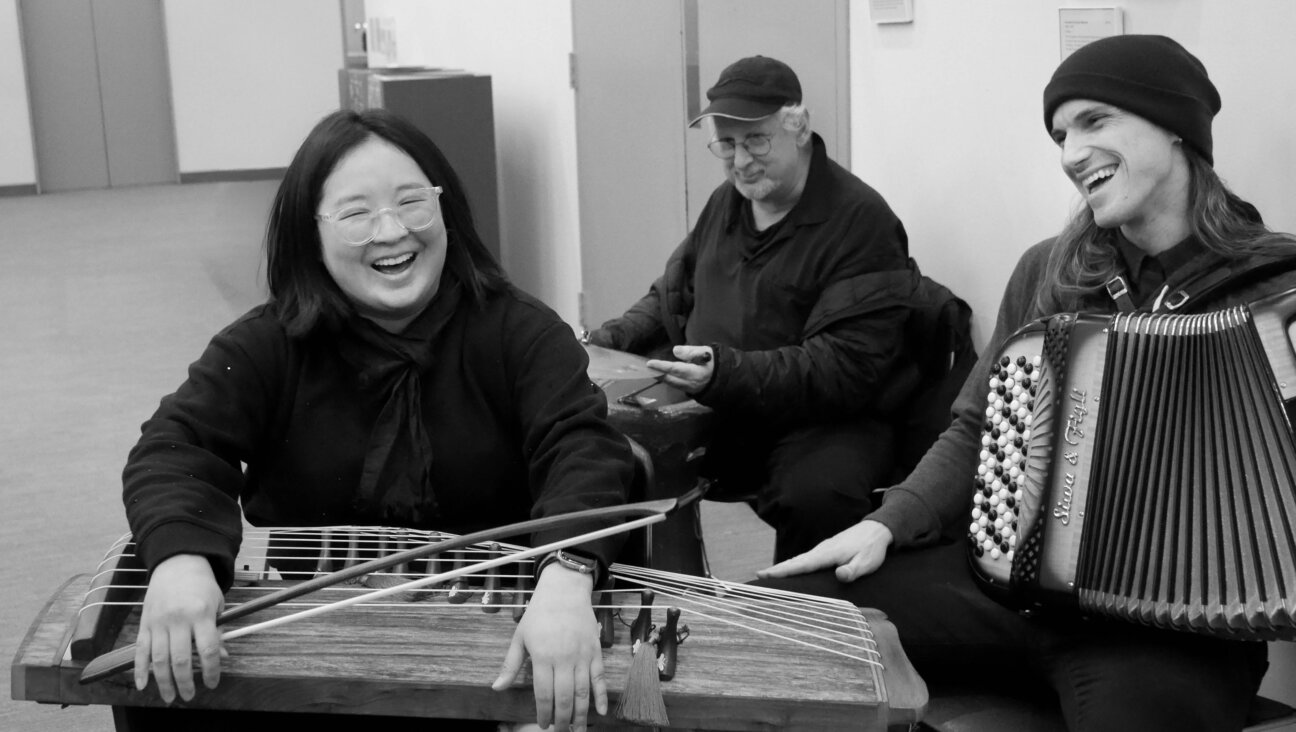A Custodian Of Memories
One day, to enhance his act, a peg-legged tightrope walker balanced a small iron cooking stove on his back. During one ill-fated performance, the high wire snapped and the performer fell to the ground, mortally wounded. A priest administered the last rites, then leaned down to catch the man’s dying words. The acrobat gasped, “But I’m Jewish.” No joke. He was. And he is buried in the Temple Beth-El Hebrew Cemetery in Corsicana, Texas, under the name Rope Walker. Today, more than 100 years later, his marble tombstone, though weathered and askew, is in good hands. Babbette Samuels, one of the five remaining Jews left in town, is the Hebrew Cemetery’s self-appointed caretaker.
All her life Samuels has lived in Corsicana, famed for its Original DeLuxe Fruitcake. She has seen the area’s Jewish community blossom after the arrival of the railroad and then with the drilling of the first oil well west of the Mississippi. Over the years, she also has seen the community fade away — like many others scattered across the South — as youngsters left for greener metropolitan pastures and older folks passed on.
In 1982, when just a handful of Beth-El families remained — barely enough for a minyan — the community decided to sell the synagogue, which had fallen into disrepair. Much to the people’s dismay, they found there were no takers. The renovations would be too costly; demolition seemed the only answer. Fortunately, Texas’s Navarro County Historical Society recognized the synagogue’s architectural and historical value and saved it from the wrecking ball. Through the historical society’s efforts, Temple Beth-El, a real East Texas eye-catcher with its tin onion-domed towers and glowing Louis Comfort Tiffany stained-glass windows, is today a Texas Historical Marker. As one of the few remaining examples of Moorish Revival architecture in the Southwest and as a tribute to immigrant Jews’ pioneering spirit, Beth-El is now ensured preservation for future generations.
Not so for Hebrew Cemetery, Corsicana’s only still-growing Jewish institution. Over the course of the past 100 years, tombstones have cracked and fallen over, inscriptions have faded, documentation has grown scant and caretakers have passed on. Now it has fallen to Samuels, who is pushing 80, to make order out of the chaos — a task she finds time for between working out, gardening, working on her computer and serving on a variety of civic committees. With the approval of the cemetery’s board of directors, Samuels devotes many a scorching Texas afternoon to collecting, verifying and re-verifying the names and the birth and death dates of the deceased.
With an eye toward future generations, and a nod to her own mortality, she plans to entrust the updated cemetery records to such Jewish repositories as the Texas Jewish Historical Society, the Web site www.jewishgen.org, and The Institute of Southern Jewish Life, located in Jackson, Miss., for safekeeping. She will not rest until her task is complete.
But Samuels’s devotion to the cemetery goes well beyond simple recordkeeping. She kindly leaves pebbles at the graves of those whose families seldom visit. She visits friends’ tombs. She cares for the grave of Irvin, her husband of 53 years, and for that of their daughter Ermalyn, taken at an early age. Although a professional maintenance service oversees the peaceful rolling grounds, Samuels spends several afternoons a week doing rounds with a small rake and a container of insecticide.
When there are no longer any Jews in Corsicana, a local bank will handle the cemetery’s finances, investments and maintenance. Ever vigilant, Samuels has come up with a contingency plan in the event that the bank doesn’t make good. “If the bank fails to keep our grounds beautiful enough to put on the cover of Better Homes and Gardens, I will come back to haunt them,” she has promised.
Melody Amsel-Arieli, a professional flutist, is the author of “Between Galicia and Hungary: The Jews of Stropkov” (Avotaynu, 2002). Her cousin, Pauline Amsel, murdered in 1914 at age 14 in Durant, Okla., is buried in Corsicana’s Hebrew Cemetery.














